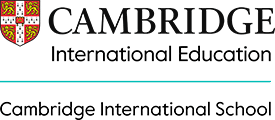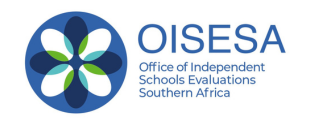To all Cambridge International Schools worldwide,
Cambridge Assessment International Education would like to reiterate our thanks to schools for your support and feedback on our decision not to hold our international examinations in the May/June 2020 series, and to the updates we sent on 26 March.
As stated in our email to schools on 26 March, we are writing today with further updates on providing grades for students, private candidates, our discussions with universities and other questions.
We are endeavouring to provide as much clarity as we can as quickly as possible. In these unprecedented circumstances, it is important for us to make sure all our students obtain the fairest outcome possible, with the quality and integrity they would expect from Cambridge.
Thank you for your patience. Further details will be sent on Tuesday 7 April, as we explain below.
Providing grades for students
It is vital to Cambridge International to ensure that all our students studying in many different countries and contexts around the world receive a fair, valid and globally recognised qualification.
The process we will use to provide grades for students will be a collaborative one with schools.
The decision on grades to be awarded to candidates will be made by Cambridge, using our own evidence combined with evidence from schools.
Our approach will be to ask schools to collaborate with us as we make evidence-based decisions about grades for each candidate in each subject they have entered for in the May/June 2020 exam series for Cambridge IGCSE, Cambridge O Level, Cambridge International AS & A Level and Cambridge Pre-U.
We are now asking schools to consider what evidence they will be able to gather to support these decisions. The evidence should consist of examples of work candidates have done to prepare for their May/ June 2020 exams.
The types of evidence that might be available could include but will not be limited to:
- mock exams
- coursework (complete or incomplete)
- assignments
- AS Level results for ‘staged-route’ A Level candidates
- grades in previous sittings for candidates re-taking exams.
You do not need to set students fresh work to gather evidence – for example, you do not need to set new mock papers, set assignments or ask them to complete unfinished coursework.
We understand that centres may not be able to access all of this evidence remotely. At this point, we ask centres to begin to consider what evidence they have available.
All of the evidence that you gather must be authenticated (that is, your centres must be satisfied that it is the candidate’s own unaided work). Heads of centre will be responsible for vouching for the authenticity of the evidence gathered about every candidate.
Please do not send any of your evidence to us at this time.
In due course you will be asked to process the evidence you have gathered. More details of the processing we will ask you to do will be shared on Tuesday 7 April.
We know that gathering and processing this evidence will take time for you to do, and you will have approximately two months to do it. Exact deadlines will be circulated later.
Your centre will be asked to send us some, or possibly all, of the evidence gathered for our auditing purposes. This request will be made at a later date, so centres must retain all of the evidence they consider, even after they have completed their processing.
Where a centre works with us via a Cambridge Associate, including the British Council, the centre itself will be responsible for gathering, processing and retaining the evidence.
We will support you throughout this process, and give you clear guidance about how to work with us, what information to submit, how and when.
We will give more detail on Tuesday 7 April about next steps and how we will use evidence.
Private candidates
We will treat private candidates in the same way as school candidates, in that all the grades we award will be based on evidence.
Where a candidate has not been taught at the centre handling their entry, centres must carefully investigate what evidence of the candidate’s work can be obtained and authenticated. Evidence from a candidate’s previous school is likely to be acceptable. Evidence from parents or from the candidates themselves should not be accepted. Evidence from tutors needs to be considered in the individual context.
Heads of centre will be responsible for vouching for the authenticity of the evidence gathered about every candidate.
Making entries and withdrawals
If it is the right decision for your centre, you can withdraw some or all entries from the June 2020 series and then enter these candidates in a later series such as November 2020. Schools can enter candidates for the November exam series from mid-May. We are reviewing if it will be possible to provide some syllabuses in this series which are currently only available in the June series. We will update centres about this before 10 April 2020.
If you have withdrawn entries for June 2020 but now wish to re-enter you can do so using Cambridge International Direct up to 17 April 2020, or 10 April for British Council schools. You will not be charged late fees or amendment fees for making these entries. You can only withdraw candidates for a complete syllabus, not for a single component. Entries will not be accepted after 17 April.
Universities
We are in direct contact with universities around the world and they understand our decision not to hold the exams in the June 2020 series. They have informed us that they are committed to being as flexible as they can towards applicants who will not be able to sit their exams due to this crisis. They understand the disruption to teaching and learning experienced by students around the world.
The grades and qualifications that Cambridge International awards for this June series will carry the same value as grades and qualifications for any other series.
We will be working with universities to explain the methodology we will follow to provide grades, and will give them information about the wide range of evidence we will use to provide fair and reliable results. We are doing everything we can to ensure that universities accept grades in the usual way and that applicants are not disadvantaged by the decision not to hold exams in the June series.
Support for schools
During this difficult time, many elements of our everyday lives have changed. We fully understand how important it is for you to continue delivering learning and keep students motivated and connected. We have been inspired to hear about all the new and innovative ways in which teaching and learning is happening around the world.
Last week, Paul Beedle (Deputy Director, Professional Development) and Andrew Field (eLearning Manager) recorded a webinar called ‘Teaching in a time of crisis – being resilient, adaptive and resourceful.’ It focuses on supporting teachers as they adapt to a new way of teaching, and shares examples of how technology can be used to enhance learning and change the dynamics of the classroom in a positive way. It also reminds teachers how important it is to be kind to themselves – we are all learning together, and the process of teaching remotely is one of trial and error.
You can watch this webinar, and others, on the ‘Teaching and Learning when school is closed’ section on our website: www.cambridgeinternational.org/support-for-schools-covid-19
This section also signposts you to:
- Tools to support remote teaching and learning
- Resources for you and your learners including tips for students and parents on managing stress and learning effectively at home
- E-books from Cambridge publishing partners
Staying in touch
You can find all our advice on our website at www.cambridgeinternational.org/covid
If you have any questions, please get in touch with us via: www.cambridgeinternational.org/help.
We will update schools again on Tuesday 7 April. We wish everyone in the Cambridge International community well at this difficult time.
For further information, please go to cambridgeinternational.org





